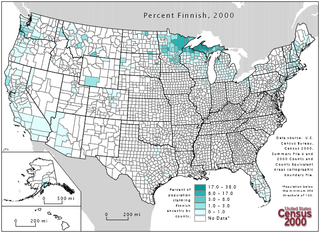See also
- Philippine English
- Franglais, or Frenglish, a mixture of French and English
Finglish is the Finnish language mixed with English.
Finglish may also refer to:

Hindi, or more precisely Modern Standard Hindi, is an Indo-Aryan language spoken in India. Hindi has been described as a standardised and Sanskritised register of the Hindustani language, which itself is based primarily on the Khariboli dialect of Delhi and neighbouring areas of Northern India. Hindi, written in the Devanagari script, is one of the two official languages of the Government of India, along with the English language. It is an official language in 9 States and 3 Union Territories and an additional official language in 3 other States. Hindi is also one of the 22 scheduled languages of the Republic of India.
Transliteration is a type of conversion of a text from one script to another that involves swapping letters in predictable ways, such as Greek ⟨α⟩ → ⟨a⟩, Cyrillic ⟨д⟩ → ⟨d⟩, Greek ⟨χ⟩ → the digraph ⟨ch⟩, Armenian ⟨ն⟩ → ⟨n⟩ or Latin ⟨æ⟩ → ⟨ae⟩.
Valence or valency may refer to:

Jonathan is a common name given to males which means "YHWH has given" in Hebrew. The earliest known use of the name was in the Bible, one Jonathan was the son of King Saul, a close friend of David.

A wide variety of languages are spoken throughout Asia, comprising different language families and some unrelated isolates. The major language families include Altaic, Austroasiatic, Austronesian, Caucasian, Dravidian, Indo-European, Afroasiatic, Siberian, Sino-Tibetan and Kra–Dai. Most, but not all, have a long history as a written language.

William is a popular given name of an old Germanic origin. It became very popular in the English language after the Norman conquest of England in 1066, and remained so throughout the Middle Ages and into the modern era. It is sometimes abbreviated "Wm." Shortened familiar versions in English include Will, Willy, Willie, Bill, and Billy. A common Irish form is Liam. Scottish diminutives include Wull, Willie or Wullie. Female forms are Willa, Willemina, Willamette, Wilma and Wilhelmina.
The term Finglish was coined by professor Martti Nisonen in the 1920s in Hancock, Michigan, to describe a mixture of Finnish and English he encountered in America. The word is first recorded in English in 1943.
OF or Of may refer to:
Persian may refer to:
The grapheme Ž is formed from Latin Z with the addition of caron. It is used in various contexts, usually denoting the voiced postalveolar fricative, the sound of English g in mirage, s in vision, or Portuguese and French j. In the International Phonetic Alphabet this sound is denoted with, but the lowercase ž is used in the Americanist phonetic notation, as well as in the Uralic Phonetic Alphabet. In addition, ž is used as the romanisation of Cyrillic ж in ISO 9 and scientific transliteration.
Ziad Youssef Fasah is a Liberian-born Lebanese polyglot. Fazah himself claims to speak 59 languages and maintains that he has proved this in several public appearances in which he "successfully" communicated with native speakers of a large number of foreign languages. According to Fazah, a Greek Orthodox, his abilities to learn languages are a gift bestowed to him by God. He currently lives in Porto Alegre, Brazil.
The tankero was a fictional animal that was quite popular in Finnish media in the 1970s.
Koli may refer to:
HIK may refer to:
Fiji Hindi or Fijian Hindi, also known locally as simply Hindustani, is an Indo-Aryan language spoken by most Indo-Fijians, though a few speak other languages at home. It is an Eastern Hindi language, considered to be a dialect of Awadhi that has also been subject to considerable influence by Bhojpuri and other Bihari dialects. It has also borrowed some words from the English and Fijian languages. Many words unique to Fiji Hindi have been created to cater for the new environment that Indo-Fijians now live in. First-generation Indians in Fiji, who used the language as a lingua franca in Fiji, referred to it as Fiji Baat, "Fiji talk". It is closely related to Caribbean Hindustani and the Bhojpuri-Hindustani language spoken in Mauritius and South Africa. It is largely mutually intellegible with the languages of Bhojpuri, Magahi, etc of Bihar and the dialects of Hindi of eastern Uttar Pradesh, but differs in phonetics and vocabulary with Modern Standard Hindi.
Romanization of Persian or Latinization of Persian is the representation of the Persian language with the Latin script. Several different romanization schemes exist, each with its own set of rules driven by its own set of ideological goals.
Fiji has three official languages under the 1997 constitution : English, iTaukei and Hindi. The iTaukei language is spoken either as a first or second language by most indigenous Fijians who make up around 54% of the population.

American Finnish, Fingliska or Fingelska is a form of the Finnish language spoken North America It has been influenced by the English language heavily. American Finnish was used actively untill the 1950s and after that it has been declining, and Finns switching to English. Even some basic phrases like "tätsrait" 'thats right' were borrowed from English.The form of speech was studied by Pertti Virtaranta in 1960, and the first American Finnish dictionary was made in 1992 It has influence from English both in Syntax and Vocabulary. In 2013 Finnish was spoken by 26.000 people in their homes In the town of Oulu, American Finnish has even third generation fluent speakers. And in Stanton, north Michigan there are even children who can speak American Finnish. American Finnish also retained loanwords from Swedish, which Modern Finnish lost.